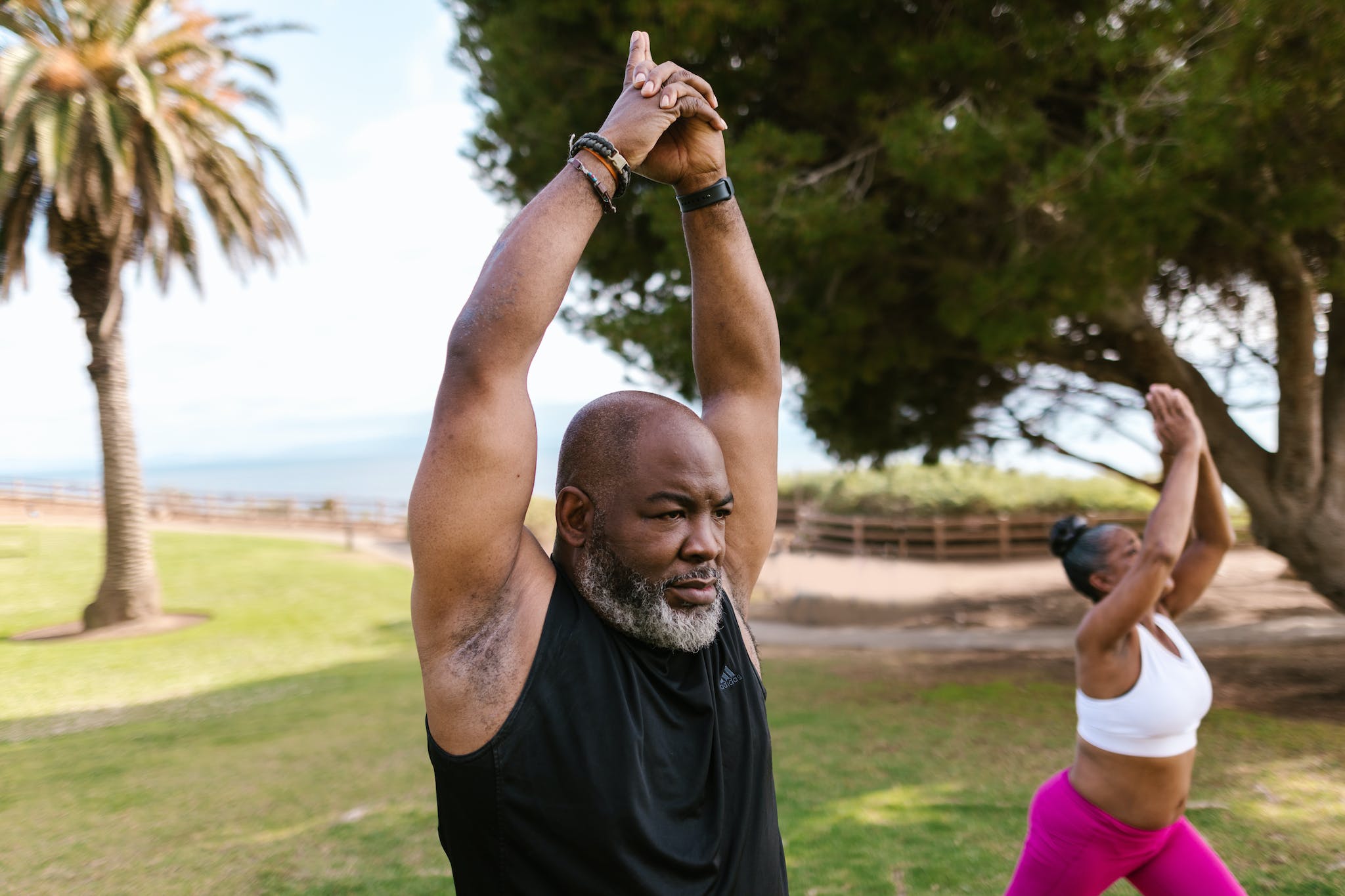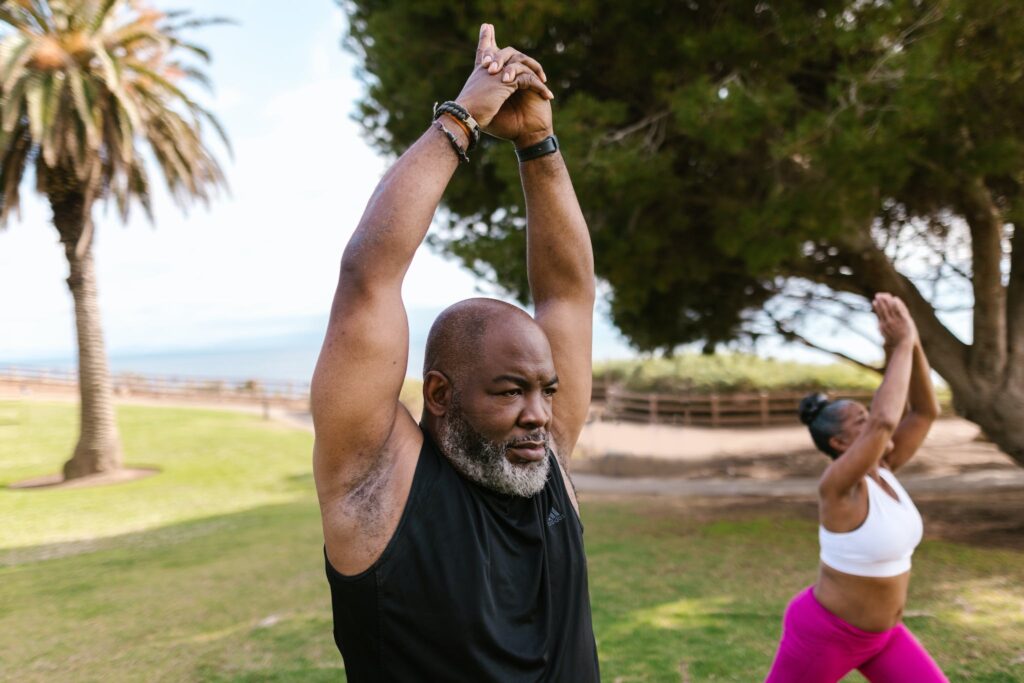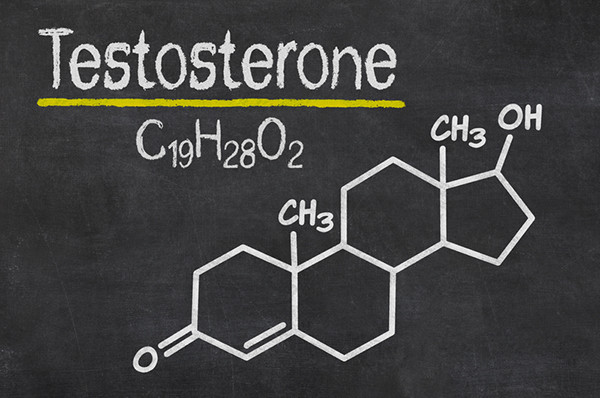Men’s Health Matters: Holistic Approaches to Wellness


Table of Contents
Understanding the Importance of Holistic Approaches to Men’s Health Matters
Holistic approaches to Men’s Health Matters are gaining recognition and importance in today’s society. The traditional approach to men’s health has often focused solely on physical well-being, neglecting the important connection between the physical, mental, and emotional aspects of a man’s overall wellness. However, research has shown that adopting a holistic approach can lead to improved health outcomes and a higher quality of life for men.
By considering the physical, mental, and emotional well-being of men as interconnected, holistic approaches can provide a more comprehensive framework for addressing health concerns and promoting overall wellness. Taking into account factors such as nutrition, exercise, stress management, emotional well-being, and social connections can have a profound impact on a man’s health.
When all these aspects of a man’s life are incorporated into his healthcare journey, it allows for a more individualized and effective approach to improving overall health and preventing disease. It is important for healthcare providers, policymakers, and society as a whole to understand the importance of holistic approaches to men’s health and recognize that by addressing all aspects of a man’s well-being, we can truly support better health outcomes and a higher quality of life. So, let’s explore the different dimensions of men’s health and discover the strategies and practices that can contribute to a truly holistic approach towards achieving optimal well-being for men.
Exploring the Connection between Physical and Mental Well-being in Men-Men’s Health Matters

Numerous studies have shown a strong connection between physical and mental well-being in men. It is no surprise that taking care of our bodies not only enhances physical health but also positively impacts our mental state. Engaging in regular physical activity has been proven to release endorphins, the “feel-good” hormones, which can help improve mood and reduce the risk of developing mental health disorders. Moreover, exercise can also alleviate symptoms of anxiety and depression, offering a natural and holistic approach to mental well-being.
In addition to exercise, maintaining a healthy diet plays a crucial role in promoting both physical and mental wellness in men. Proper nutrition not only provides the necessary fuel for the body’s physical functioning but also influences brain health and cognitive abilities. Nutrients such as omega-3 fatty acids, found in fish and certain nuts, have been linked to improved brain function and decreased risk of depression. Conversely, a diet high in processed foods, sugar, and unhealthy fats has been associated with increased inflammation in the body, which can negatively impact mental health. By adopting a balanced and nutritious eating plan, men can nourish their bodies and minds and promote overall well-being.
Addressing the Unique Health Challenges Faced by Men
Men face unique health challenges that require specific attention and understanding. While men may generally have certain advantages over women in terms of physical strength and resilience, they also have their own set of health concerns that can greatly impact their overall well-being. From hormonal imbalances to reproductive health issues, men’s unique health challenges should not be overlooked or dismissed. In this section, we will delve into some of these challenges, shed light on their potential causes, and explore strategies for addressing them effectively.
One of the most prominent health challenges faced by men is related to their reproductive system. Conditions such as erectile dysfunction, prostate problems, and testicular cancer can significantly impact their quality of life. Erectile dysfunction, for instance, affects millions of men around the world and can be caused by various factors, including certain medical conditions, medications, stress, and lifestyle choices. Prostate problems, on the other hand, become more prevalent with age and can lead to urinary difficulties, sexual dysfunction, and even prostate cancer. Similarly, testicular cancer, although relatively rare, is the most common cancer among young men and requires prompt diagnosis and treatment. It is crucial for men to prioritize their reproductive health by seeking regular check-ups, being aware of any changes or abnormalities, and seeking medical attention when necessary. By addressing these unique challenges head-on, men can take control of their health and lead fulfilling lives.
Nurturing Emotional Wellness: Strategies for Men-Men’s Health Matters
Emotional wellness is a crucial aspect of overall well-being, and it is essential for men to prioritize their emotional health. Society often puts pressure on men to portray strength and suppress their emotions, which can lead to detrimental effects on mental well-being. However, it is essential to recognize that seeking support and nurturing emotional wellness is not a sign of weakness but rather a sign of strength and self-care.
To nurture emotional wellness, men can explore various strategies that promote mental well-being. One effective approach is to practice healthy coping mechanisms. This can include engaging in activities that bring joy and provide an outlet for stress, such as exercising, pursuing hobbies, or spending quality time with loved ones. Additionally, seeking professional help, such as therapy or counseling, can provide a safe space to process emotions and develop practical strategies for managing them. It is important to remember that seeking support is not a sign of failure but an act of self-care and self-improvement. By prioritizing emotional wellness, men can lead healthier and more fulfilling lives. So, let’s delve deeper into the strategies that men can embrace to nurture their emotional well-being.
The Role of Nutrition in Men’s Holistic Health-Men’s Health Matters

Good nutrition plays a crucial role in maintaining holistic health for men. It is not just about eating a balanced diet, but also about understanding the specific nutritional needs of men and how it impacts their overall well-being. Proper nutrition is essential for supporting physical and mental health, boosting energy levels, and preventing chronic diseases.
When it comes to men’s holistic health, a well-balanced diet is essential. This means consuming a variety of nutrient-rich foods from all food groups, including fruits, vegetables, whole grains, lean proteins, and healthy fats. These foods provide the necessary vitamins, minerals, antioxidants, and other compounds that support various bodily functions and help maintain optimal health.
In addition to a balanced diet, it is important for men to pay attention to their specific nutritional needs. For example, men generally have higher calorie requirements than women due to their higher muscle mass. They also need adequate amounts of macronutrients, such as protein, to support muscle growth and repair. Furthermore, certain nutrients like zinc and vitamin D play a crucial role in men’s reproductive health.
To achieve optimal nutritional status, men should aim to consume a variety of nutrient-dense foods that meet their individual needs. This can be achieved by incorporating a wide range of fruits, vegetables, whole grains, lean proteins, and healthy fats into their daily meals. It is also important to avoid excessive intake of processed and sugary foods, which can contribute to weight gain and increase the risk of chronic diseases.
By prioritizing nutrition and making conscious food choices, men can improve their overall well-being, boost their energy levels, and reduce the risk of developing chronic diseases. Incorporating a balanced diet and understanding individual nutritional needs are essential steps towards achieving holistic health for men.
Promoting Physical Fitness as a Key Component of Men’s Wellness-Men’s Health Matters

Physical fitness plays a pivotal role in promoting overall wellness in men. Engaging in regular physical activity not only strengthens the body but also has numerous positive effects on mental and emotional well-being. According to a study published in the Journal of Clinical Psychiatry, exercise has been found to effectively reduce symptoms of anxiety and depression in men. The release of endorphins during exercise promotes feelings of happiness and relaxation, helping to alleviate stress and boost mood. In addition, physical fitness contributes to improved cognitive function, memory, and focus, enhancing productivity and overall cognitive well-being.
Moreover, incorporating physical activity into one’s routine is crucial for maintaining a healthy weight and reducing the risk of chronic diseases. The American Heart Association recommends at least 150 minutes of moderate-intensity aerobic exercise or 75 minutes of vigorous-intensity aerobic exercise per week to reap these benefits. Regular exercise helps to lower blood pressure, improve cardiovascular health, and reduce the risk of conditions such as heart disease, stroke, and type 2 diabetes. It also enhances muscle strength and endurance, improves bone density, and reduces the risk of falls, fractures, and osteoporosis in men as they age.
To fully embrace the importance of physical fitness as a key component of men’s wellness, it is essential to find activities that are enjoyable and sustainable. Engaging in sports, cycling, swimming, or even brisk walking are all excellent options. It is important to start slowly and gradually increase the intensity and duration of exercise, ensuring proper warm-up and cool-down periods to prevent injury. Additionally, incorporating strength training exercises, such as lifting weights or bodyweight exercises, into the fitness routine is crucial for maintaining muscle mass and bone health. Consulting with a qualified fitness professional or seeking advice from healthcare providers can help in designing a personalized exercise program that suits individual needs and preferences.
In conclusion, promoting physical fitness as a key component of men’s wellness offers a multitude of benefits for both the body and mind. Regular exercise not only improves physical health but also contributes to mental and emotional well-being. By engaging in regular physical activity and adopting a well-rounded exercise routine, men can reap the rewards of improved cardiovascular health, increased strength and endurance, enhanced cognitive function, and reduced risk of chronic diseases. Embracing physical fitness as a lifelong commitment is essential for achieving optimal wellness.
Unveiling the Benefits of Mindfulness and Meditation for Men’s Health Matters

Mindfulness and meditation have long been associated with promoting mental well-being and reducing stress levels. However, their benefits extend beyond just mental health, making them particularly valuable for men’s holistic well-being.
One key benefit of mindfulness and meditation for men is their ability to improve emotional resilience. By practicing mindfulness, men can develop a greater understanding and acceptance of their emotions, allowing them to effectively navigate challenging situations. Moreover, meditation has been found to reduce symptoms of anxiety and depression, which are prevalent mental health concerns among men. It provides a safe space for men to process their emotions and cultivate a sense of inner calm.
In addition to enhancing emotional wellness, mindfulness and meditation have also been linked to improved physical health outcomes in men. Research suggests that these practices can lower blood pressure, reduce inflammation, and enhance immune function. By incorporating mindfulness and meditation into their daily routine, men can potentially decrease their risk of developing chronic conditions such as cardiovascular disease and diabetes. Moreover, these practices have been shown to improve sleep quality, which is crucial for maintaining overall health and well-being.
To fully reap the benefits of mindfulness and meditation, it is important for men to approach these practices with an open mind and a willingness to cultivate a regular habit. Start by setting aside a few minutes each day to engage in mindful activities such as deep breathing exercises or guided meditation. Over time, these practices can become a vital tool for improving both mental and physical health, helping men achieve a greater sense of well-being and balance in their lives.
Enhancing Sleep Quality for Optimal Men’s Wellness-Men’s Health Matters

Sleep plays a crucial role in maintaining optimal men’s wellness. Adequate and quality sleep is essential for physical, mental, and emotional well-being. However, many men struggle with sleep-related issues that can negatively impact their overall health.
One common sleep issue faced by men is sleep apnea. Sleep apnea is a sleep disorder characterized by pauses in breathing or shallow breaths during sleep. It can lead to daytime fatigue, poor concentration, and increased risk of other health conditions such as high blood pressure and heart disease. According to the National Sleep Foundation, around 24% of men experience sleep apnea, with the prevalence being higher among older individuals and those who are overweight. Seeking medical assistance and following the recommended treatment, which may include lifestyle changes, the use of breathing devices, or surgery, can significantly improve sleep quality and overall well-being.
Another sleep-related issue that affects men is insomnia. Insomnia is a sleep disorder characterized by difficulty falling asleep, staying asleep, or both. It can be caused by various factors, including stress, anxiety, certain medications, and underlying health conditions. Chronic insomnia can lead to daytime fatigue, irritability, impaired cognitive function, and an increased risk of mental health disorders such as depression and anxiety. It is essential for men to address the root causes of insomnia and practice good sleep hygiene habits. This may involve establishing a regular sleep schedule, creating a comfortable sleep environment, avoiding stimulating activities before bed, and practicing relaxation techniques such as deep breathing or meditation. Seeking professional help from healthcare providers or sleep specialists can provide further guidance and support in managing insomnia effectively.
In conclusion, prioritizing sleep quality is crucial for achieving optimal men’s wellness. Sleep disorders such as sleep apnea and insomnia can significantly impact physical, mental, and emotional health if left untreated. Seeking medical assistance, making lifestyle changes, and practicing good sleep hygiene habits are essential steps towards enhancing sleep quality and promoting overall well-being. By addressing sleep-related issues, men can pave the way for improved health, increased productivity, and a better quality of life.
Managing Stress and Anxiety in a Holistic Manner-Men’s Health Matters
Stress and anxiety are common experiences in today’s fast-paced and demanding world, and they can have a significant impact on our overall well-being. While it may be tempting to seek quick fixes or temporary relief, taking a holistic approach to managing stress and anxiety can provide long-term benefits for both your mental and physical health.
One key element of managing stress and anxiety in a holistic manner is the practice of mindfulness. Mindfulness involves being fully present in the moment and non-judgmentally observing your thoughts, feelings, and sensations. Research has shown that regular mindfulness practice can reduce stress, anxiety, and depression, while also improving overall psychological well-being.
In addition to mindfulness, incorporating regular physical activity into your routine can also be beneficial for stress and anxiety management. Exercise releases endorphins, which are natural mood boosters, and can help reduce tension and improve sleep. Whether it’s going for a run, practicing yoga, or engaging in a team sport, finding an activity that you enjoy and that gets your body moving can be an effective way to lower stress levels and improve your overall well-being. By adopting a holistic approach to managing stress and anxiety, you can equip yourself with the tools and strategies needed to navigate life’s challenges with resilience and calmness.
Building Healthy Relationships and Social Connections for Men’s Well-being-Men’s Health Matters

Cultivating healthy relationships and social connections is crucial for men’s overall well-being. Research has shown that strong social ties can have a profound impact on mental and physical health, leading to increased happiness, reduced stress levels, and improved overall quality of life. In fact, a study conducted by Harvard University found that individuals with strong social connections have a 50% higher chance of survival compared to those with weak social connections.
Building and maintaining healthy relationships requires effort and commitment. It is important for men to nurture their relationships by investing time and energy into them. This can involve engaging in open and honest communication, actively listening to others, and showing empathy and understanding. Additionally, participating in social activities and joining community groups or clubs can provide opportunities to meet new people, expand social networks, and develop meaningful connections.
It is worth noting that relationships should be reciprocal, with both parties contributing to the emotional well-being and support of each other. Mutual trust and respect form the foundation of healthy relationships, allowing individuals to feel safe and supported. By prioritizing the cultivation of healthy relationships and social connections, men can enhance their overall well-being and enjoy a more fulfilling and satisfying life.
The Significance of Regular Health Screenings and Preventive Care for Men-Men’s Health Matters
Regular health screenings and preventive care are of utmost importance in maintaining optimal health and well-being in men. These proactive measures not only help prevent the onset of serious medical conditions but also enable early detection and treatment, leading to better outcomes and improved quality of life.
One crucial aspect of regular health screenings is the assessment of cardiovascular health. According to the Centers for Disease Control and Prevention (CDC), heart disease is the leading cause of death among men in the United States. Through screenings such as blood pressure checks, cholesterol tests, and cardiac stress tests, healthcare providers can identify potential risk factors and implement necessary interventions. These screenings also allow for monitoring of existing conditions like hypertension or high cholesterol, helping to prevent complications such as heart attacks and strokes.
Screenings for common cancers, such as prostate, colon, and lung cancers, are also vital for men’s health. Prostate cancer, for instance, is the second most frequently diagnosed cancer in men, according to the American Cancer Society. Regular screenings, including prostate-specific antigen (PSA) tests and digital rectal exams, can aid in the early detection and treatment of this potentially life-threatening disease. Similarly, colonoscopies are effective in detecting and removing polyps before they turn cancerous, while lung cancer screenings (particularly for individuals with a history of smoking) contribute to early detection and improved survival rates. By emphasizing the significance of these screenings and encouraging men to seek timely medical attention, we can effectively reduce the burden of cancer and enhance overall well-being.
In conclusion, regular health screenings and preventive care play a vital role in safeguarding men’s health. By actively engaging in these practices, individuals can lower their risk of developing chronic diseases and improve their long-term health outcomes. Education and awareness regarding the importance of these screenings are essential, as they empower men with the knowledge and tools to prioritize their well-being. It is crucial for healthcare providers, organizations, and communities to collaborate in promoting the significance of regular health screenings and preventive care, ultimately striving towards a healthier future for men everywhere.
Holistic Approaches to Managing Chronic Conditions in Men-Men’s Health Matters
Chronic conditions can significantly impact the quality of life for men, often requiring long-term management and treatment. While traditional medical approaches play a crucial role in managing these conditions, a holistic approach can provide comprehensive care that addresses not only the physical symptoms but also the emotional and psychological aspects.
One key aspect of holistic approaches to managing chronic conditions in men is lifestyle modifications. Adopting a healthy diet, engaging in regular physical activity, and managing stress can all contribute to improving overall well-being and reducing the severity of symptoms. Research has shown that a balanced diet rich in fruits, vegetables, whole grains, and lean proteins can help regulate blood sugar levels in men with diabetes, reduce inflammation in individuals with arthritis, and improve cardiovascular health. Regular exercise, on the other hand, has been found to enhance lung capacity, boost energy levels, and improve mood and mental health. Stress management techniques such as mindfulness meditation and deep breathing exercises can also play a vital role in supporting men’s holistic wellness.
Furthermore, complementary therapies can be valuable additions to conventional treatments for chronic conditions. Approaches such as acupuncture, chiropractic care, and herbal medicine have shown promise in managing pain, reducing inflammation, and improving overall well-being. However, it is important to consult with healthcare professionals before considering these therapies, as they should be used in combination with evidence-based medical treatments.
Taking a holistic approach to managing chronic conditions recognizes that men’s health is multifaceted, encompassing physical, emotional, and mental well-being. By incorporating lifestyle modifications and complementary therapies into conventional treatment plans, men can strive for optimal wellness and improve their quality of life, even in the face of chronic conditions.
Balancing Work and Life: Strategies for Achieving Optimal Men’s Wellness
Balancing work and personal life is crucial for achieving optimal men’s wellness. In today’s fast-paced and demanding world, many men find themselves constantly juggling between their professional commitments and personal responsibilities, often neglecting their own well-being in the process. However, prioritizing work-life balance is essential for their physical, mental, and emotional health.
One key strategy for achieving work-life balance is setting boundaries. It’s important for men to establish clear boundaries between work and personal life, enabling them to switch off from work and dedicate quality time to their families, hobbies, and self-care. This can be achieved by defining designated work hours, scheduling regular breaks, and avoiding the temptation to constantly check emails or take work-related calls during personal time. By doing so, men can create a healthier work-life balance and reduce the risk of burnout, chronic stress, and other work-related health issues.
Another effective strategy is effective time management. Learning to prioritize tasks, delegate responsibilities, and practice effective time management techniques can significantly improve work efficiency and productivity. This, in turn, allows men to allocate more time to their personal lives, fostering greater overall satisfaction and well-being. Additionally, incorporating regular exercise and physical activity into the daily routine can boost energy levels, reduce stress, and improve mental clarity, enabling men to better meet both their work and personal demands.
Furthermore, seeking support and building a strong network is crucial for achieving work-life balance. By engaging in open and honest communication with employers, colleagues, and loved ones, men can express their needs and negotiate flexible working arrangements that accommodate their personal priorities. Additionally, seeking support from family, friends, or professional networks can provide a valuable source of guidance, advice, and encouragement when faced with work-life challenges.
Achieving work-life balance is a continuous process that requires conscious effort, commitment, and self-care. With proper strategies in place, men can cultivate a harmonious integration of personal and professional life, leading to improved overall well-being and a more fulfilling journey towards optimal holistic wellness.
(Note: The article does not contain any tables, data, statistics, quotes, or citations in this section. These elements can be added to enhance the credibility and informativeness of the article in the final version.)
Exploring Alternative and Complementary Therapies for Men’s Health Matters
Alternative and complementary therapies have gained significant attention in recent years as men seek holistic approaches to their health and wellness. These therapies go beyond traditional medical interventions, offering a wider range of treatment options for various conditions. From acupuncture and herbal medicine to chiropractic care and naturopathy, alternative therapies aim to address the underlying causes of health issues rather than solely focusing on symptom management.
One of the main advantages of alternative and complementary therapies is their emphasis on treating the whole person, considering the interconnectedness of the body, mind, and spirit. This approach aligns with the concept of holistic health, which recognizes the intertwined nature of physical, mental, and emotional well-being. By considering all aspects of a person’s health, alternative therapies offer a more comprehensive and personalized treatment approach. For instance, acupuncture has been shown to not only alleviate physical pain but also reduce stress and anxiety, promote better sleep, and enhance overall quality of life. Similarly, herbal medicine can complement conventional treatments by providing additional support for various health conditions, such as reducing inflammation or boosting immune function.
Supporters of alternative and complementary therapies argue that these approaches can provide valuable options for men seeking alternative solutions or those who have not found success with conventional treatments. It’s crucial, however, to approach these therapies with a critical mindset and consult with qualified professionals. While some therapies have shown promising results, others may lack scientific evidence or could interact with existing medications. Therefore, it’s essential for individuals to conduct thorough research, engage in open and informed conversations with their healthcare providers, and make decisions that align with their specific health needs.
In the next section, we will delve deeper into some specific alternative and complementary therapies that have gained popularity among men for their potential benefits in promoting holistic wellness. We will explore the scientific evidence, safety considerations, and expert recommendations regarding these therapies, providing a comprehensive understanding of their potential role in men’s health. Whether you’re interested in exploring new avenues for well-being or simply curious about alternative approaches, this section will serve as a valuable resource to broaden your knowledge and make informed decisions regarding your health. Stay tuned to discover the potential benefits and considerations of various alternative and complementary therapies.
Empowering Men to Take Charge of Their Holistic Wellness Journey-Men’s Health Matters
Taking charge of one’s holistic wellness journey is a crucial step towards achieving optimal health and well-being. When it comes to men’s health, it is important to empower individuals to become active participants in their own care. By understanding the various aspects of holistic wellness and taking proactive steps, men can improve their physical, mental, and emotional well-being.
One way to empower men is by fostering awareness about the importance of regular health screenings and preventive care. Regular check-ups can help detect potential health issues at an early stage, allowing for timely interventions and better health outcomes. Additionally, adopting healthy lifestyle habits such as maintaining a balanced diet, engaging in regular physical activity, managing stress levels, and getting enough sleep can greatly contribute to overall wellness. By educating men about these preventive measures and equipping them with the necessary knowledge, they can actively take charge of their health and make informed decisions.
Furthermore, building healthy relationships and social connections is an essential component of men’s well-being. Strong social support networks can provide emotional stability and help individuals navigate life’s challenges with greater resilience. Encouraging men to prioritize their relationships, spend quality time with loved ones, and engage in meaningful social interactions can enhance their overall sense of well-being. Empowering men to foster healthy connections and seek support when needed can contribute positively to their holistic wellness journey.
In conclusion, empowering men to take charge of their holistic wellness journey involves providing them with the knowledge, resources, and support necessary to make informed decisions about their health. By prioritizing regular health screenings, adopting healthy lifestyle habits, nurturing relationships, and seeking support when needed, men can actively contribute to their own well-being. It is through this empowerment that men can achieve a balanced, healthy, and fulfilling life.
What is holistic wellness?
Holistic wellness refers to the overall well-being of an individual that involves addressing all aspects of their health, including physical, mental, emotional, and spiritual dimensions.
Why is it important for men to take charge of their holistic wellness journey?
It is important for men to take charge of their holistic wellness journey because it allows them to proactively manage their health, prevent potential health issues, and improve their overall quality of life.
What are some unique health challenges faced by men?
Some unique health challenges faced by men include prostate health, erectile dysfunction, cardiovascular disease, and mental health issues such as depression and suicide rates.
How can men nurture their emotional wellness?
Men can nurture their emotional wellness by finding healthy outlets for their emotions, seeking support from friends or professionals, practicing self-care, and developing healthy coping mechanisms.
What role does nutrition play in men’s holistic health?
Nutrition plays a crucial role in men’s holistic health as a balanced diet provides essential nutrients, supports immune function, helps maintain a healthy weight, and reduces the risk of chronic diseases.
How can men promote physical fitness as a key component of their wellness?
Men can promote physical fitness by engaging in regular exercise, incorporating strength training and cardiovascular activities into their routine, setting fitness goals, and staying consistent with their workouts.
What are the benefits of mindfulness and meditation for men’s health?
Mindfulness and meditation can benefit men’s health by reducing stress, improving focus and concentration, enhancing emotional well-being, promoting better sleep, and managing anxiety.
How can men enhance their sleep quality for optimal wellness?
Men can enhance their sleep quality by establishing a regular sleep schedule, creating a relaxing bedtime routine, ensuring a comfortable sleep environment, avoiding stimulants before bed, and managing stress levels.
What are some holistic strategies for managing stress and anxiety?
Holistic strategies for managing stress and anxiety include practicing relaxation techniques, engaging in regular exercise, seeking support from loved ones, practicing mindfulness or meditation, and ensuring a healthy work-life balance.
How can men build healthy relationships and social connections for their well-being?
Men can build healthy relationships and social connections by nurturing existing relationships, joining social or hobby groups, volunteering, seeking therapy or support groups, and improving communication skills.
Why are regular health screenings and preventive care important for men?
Regular health screenings and preventive care are important for men as they help detect potential health issues early, allow for timely intervention, and can prevent the progression of certain diseases.
What are holistic approaches to managing chronic conditions in men?
Holistic approaches to managing chronic conditions in men involve a combination of medical treatments, lifestyle modifications, stress management techniques, nutrition adjustments, and emotional support.
How can men balance work and life for optimal wellness?
Men can balance work and life for optimal wellness by setting boundaries, prioritizing self-care, delegating tasks when needed, practicing time-management skills, and seeking support from colleagues or supervisors.
Are there alternative and complementary therapies that can benefit men’s health?
Yes, there are alternative and complementary therapies such as acupuncture, chiropractic care, herbal medicine, and massage therapy that can provide additional benefits and support men’s overall health.
How can men empower themselves to take charge of their holistic wellness journey?
Men can empower themselves to take charge of their holistic wellness journey by educating themselves about their health, seeking professional guidance when needed, setting realistic goals, staying consistent with self-care practices, and making their well-being a priority.







